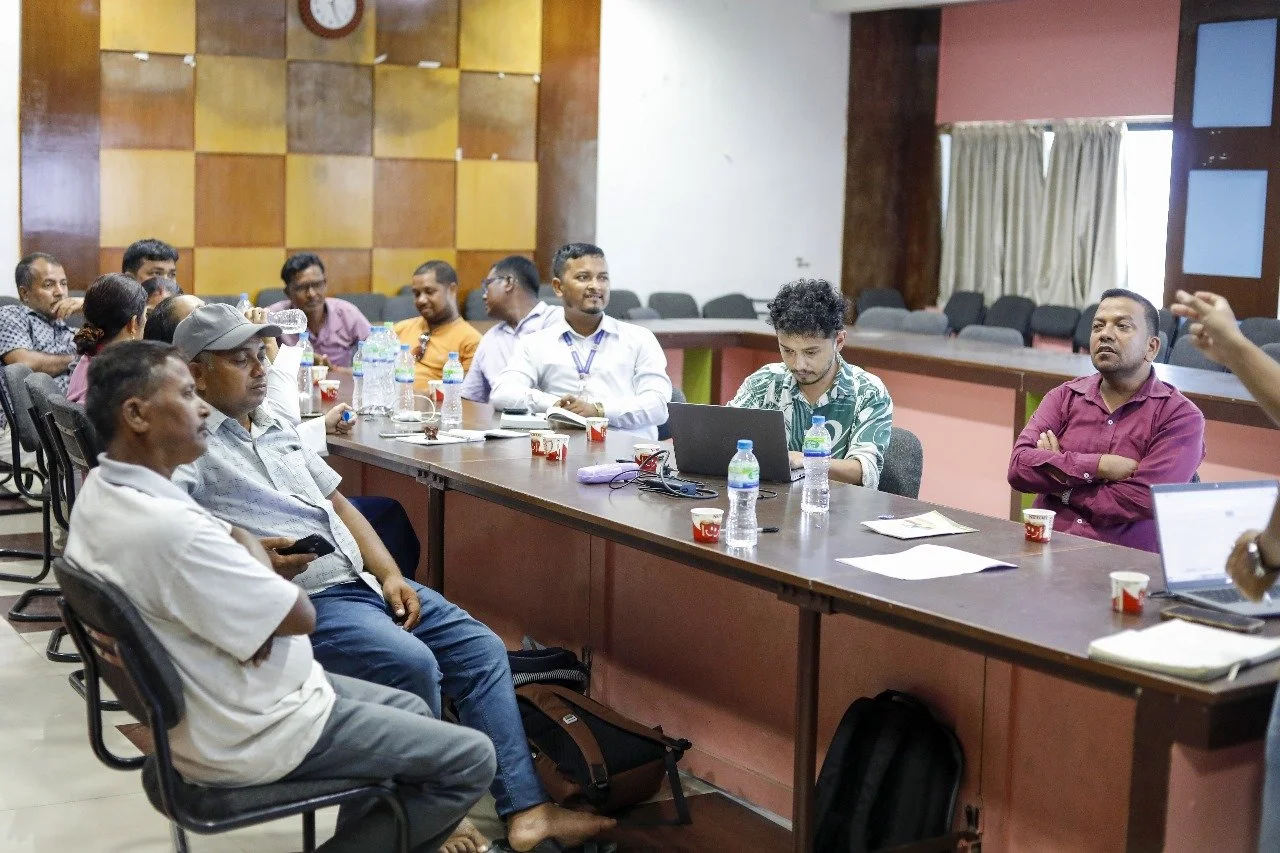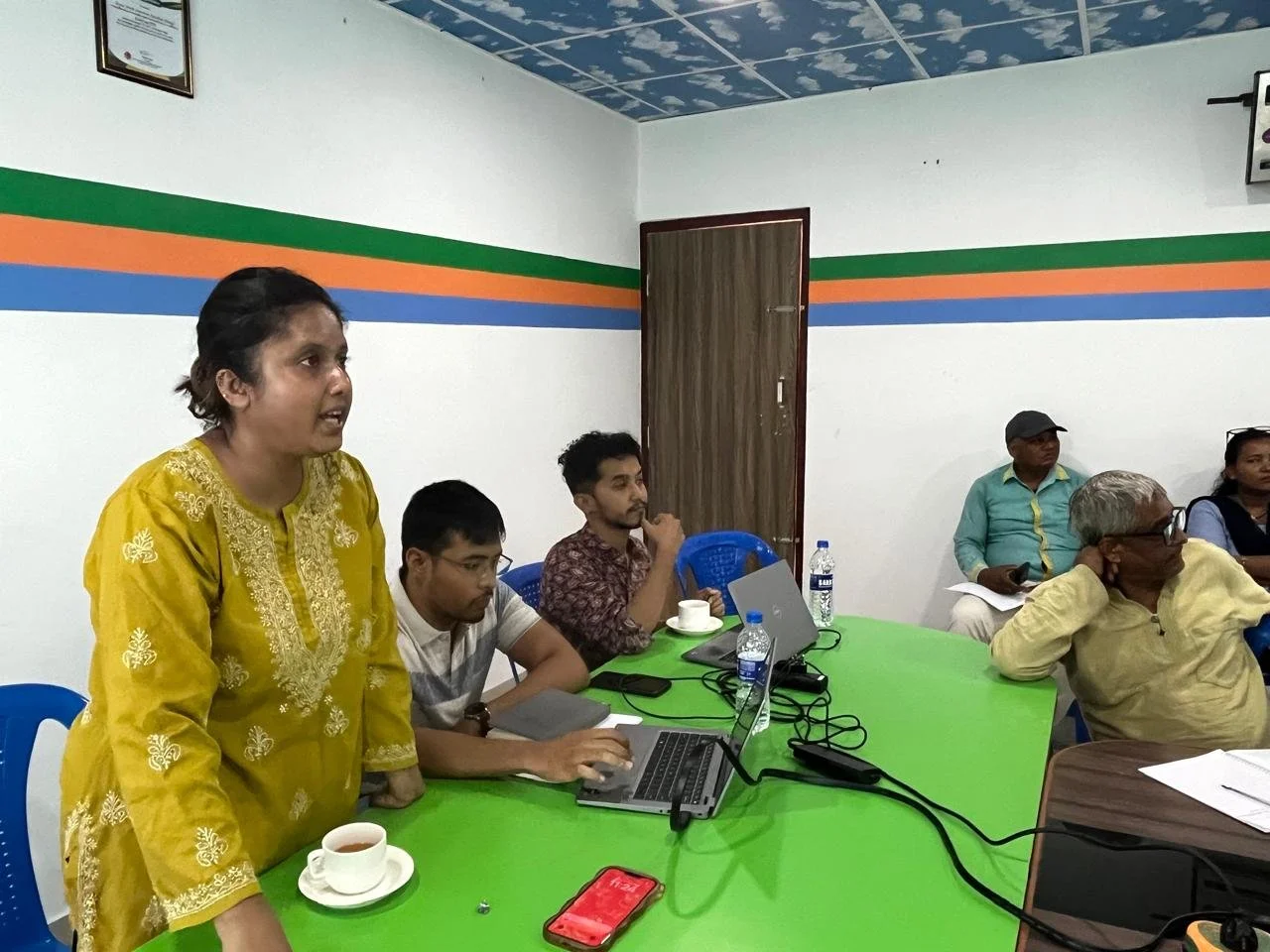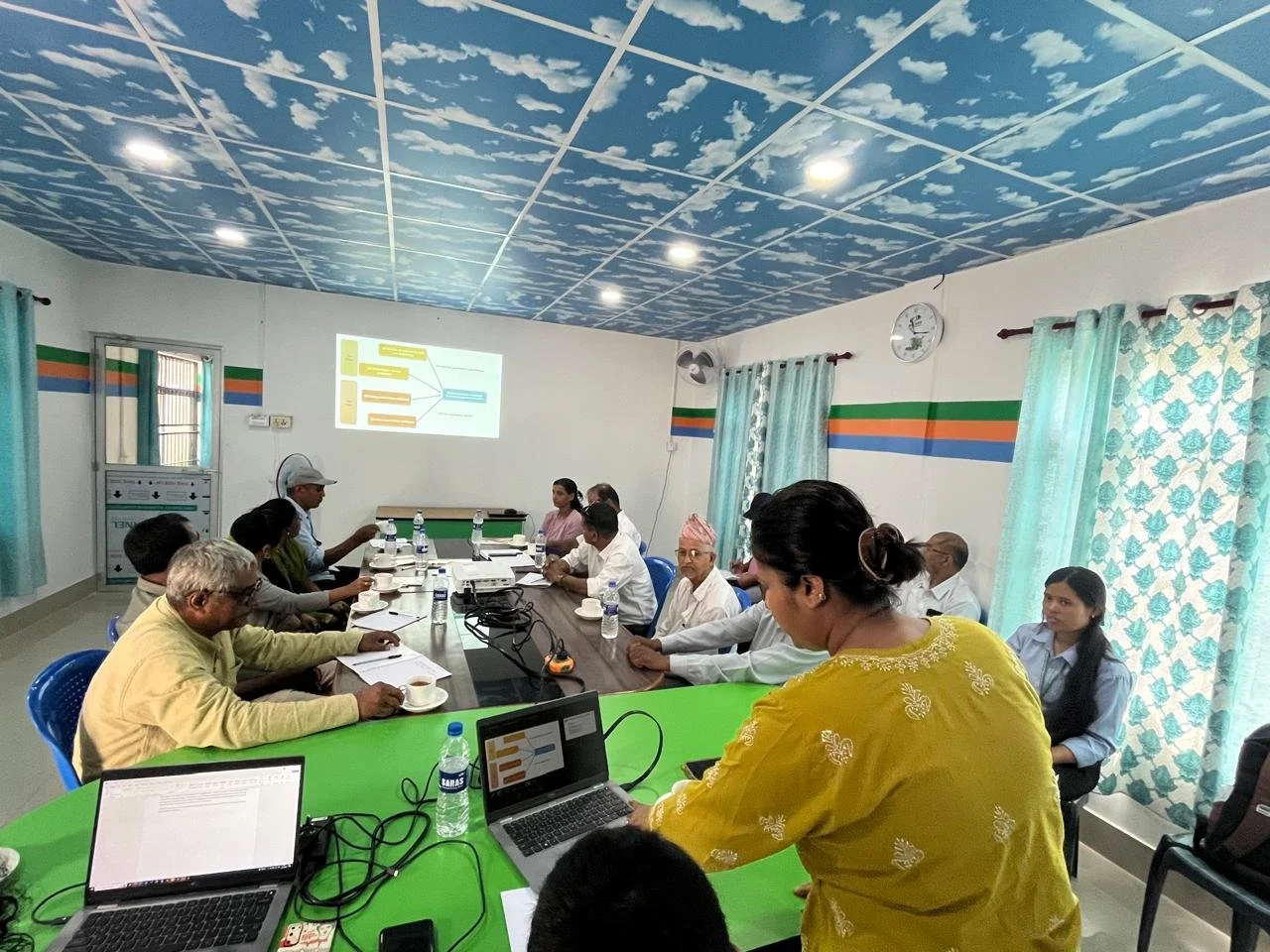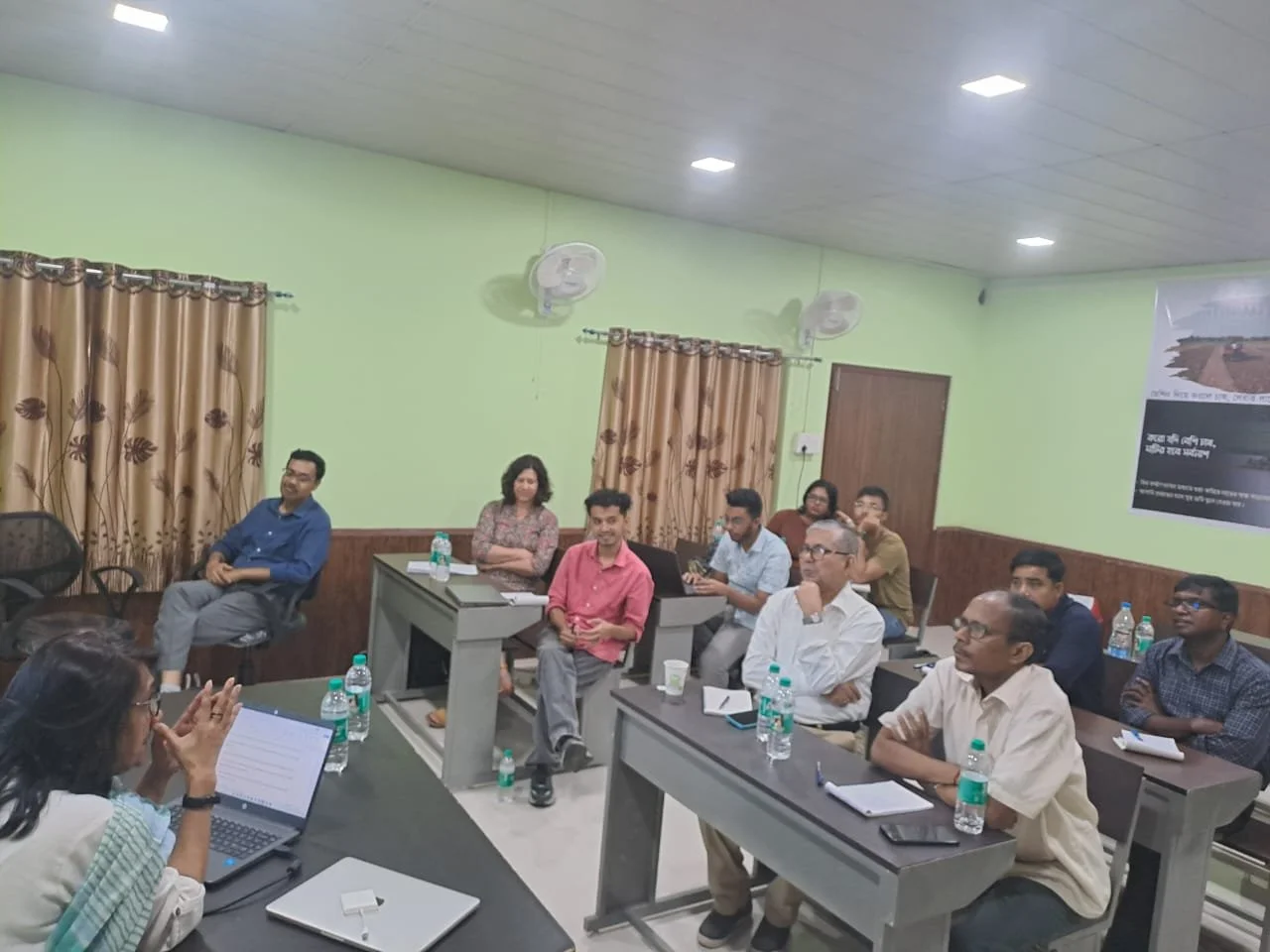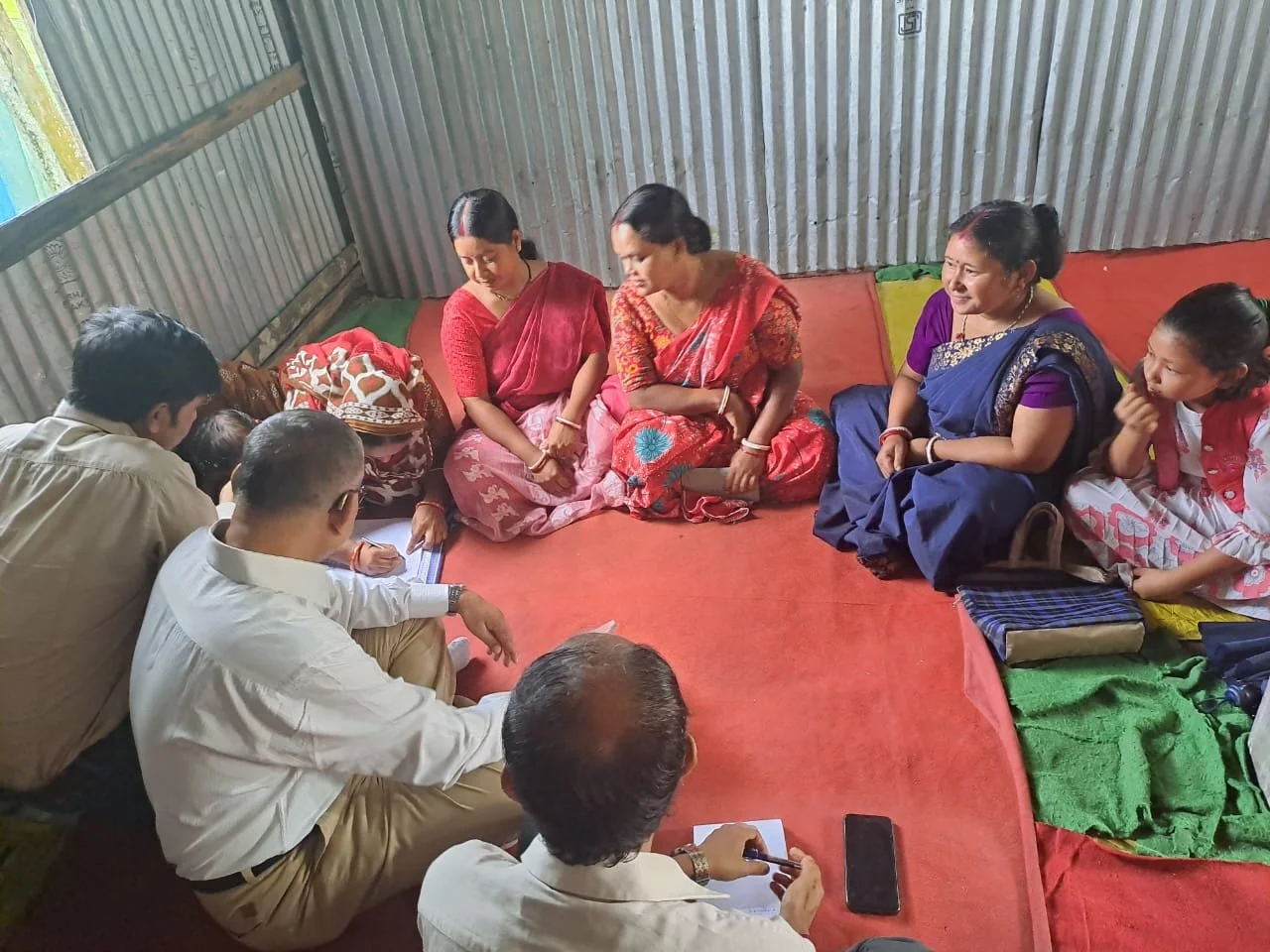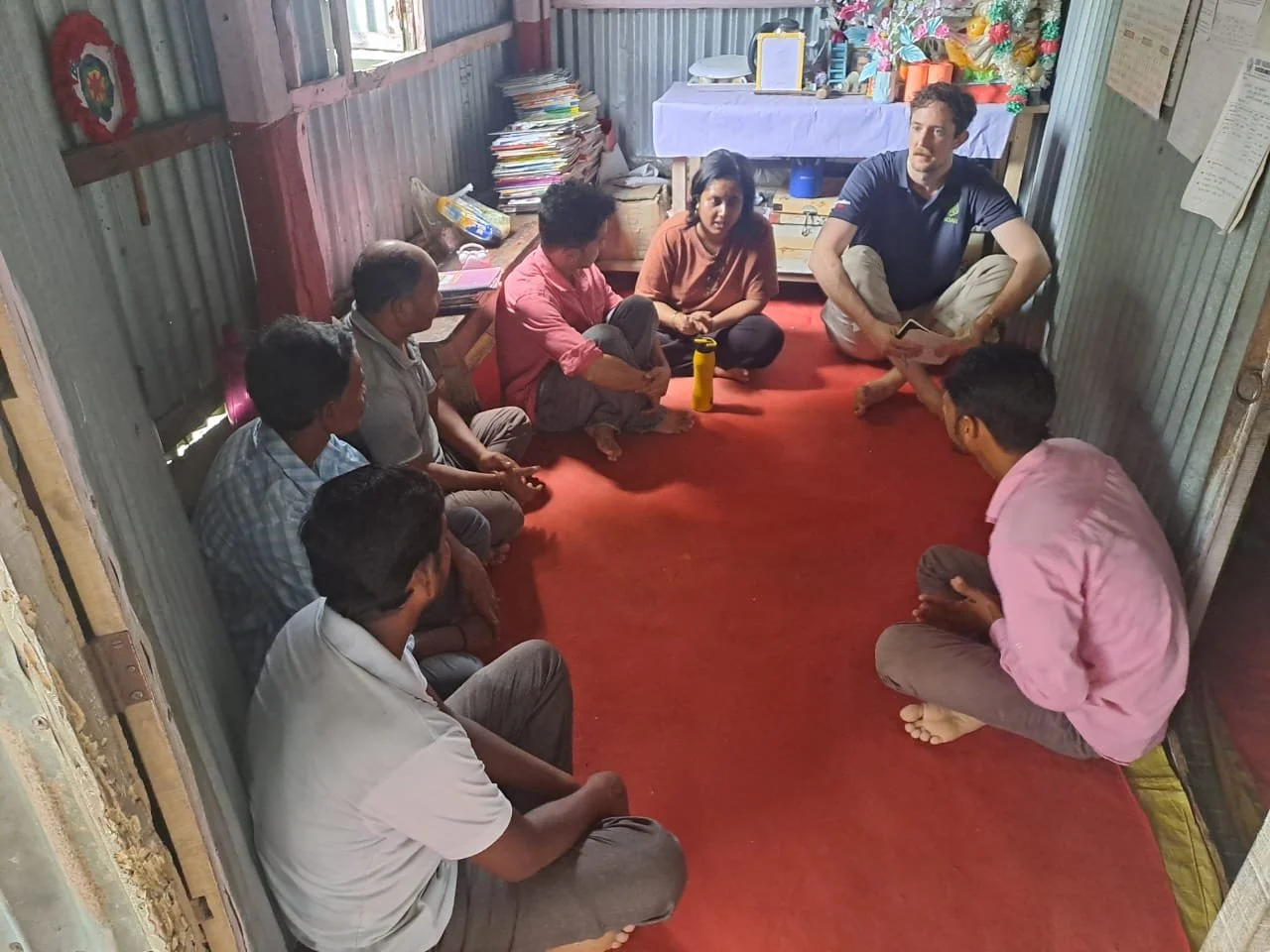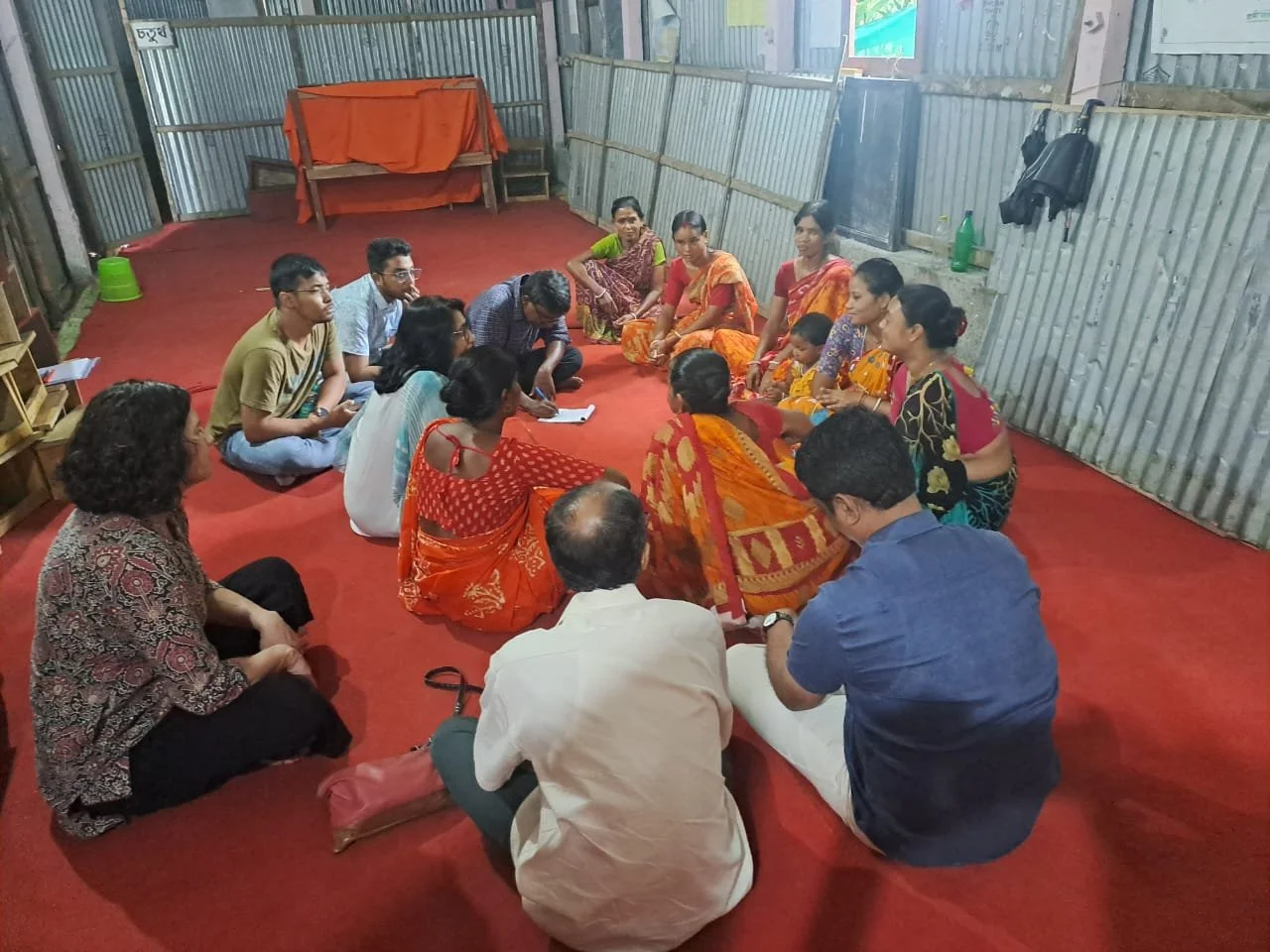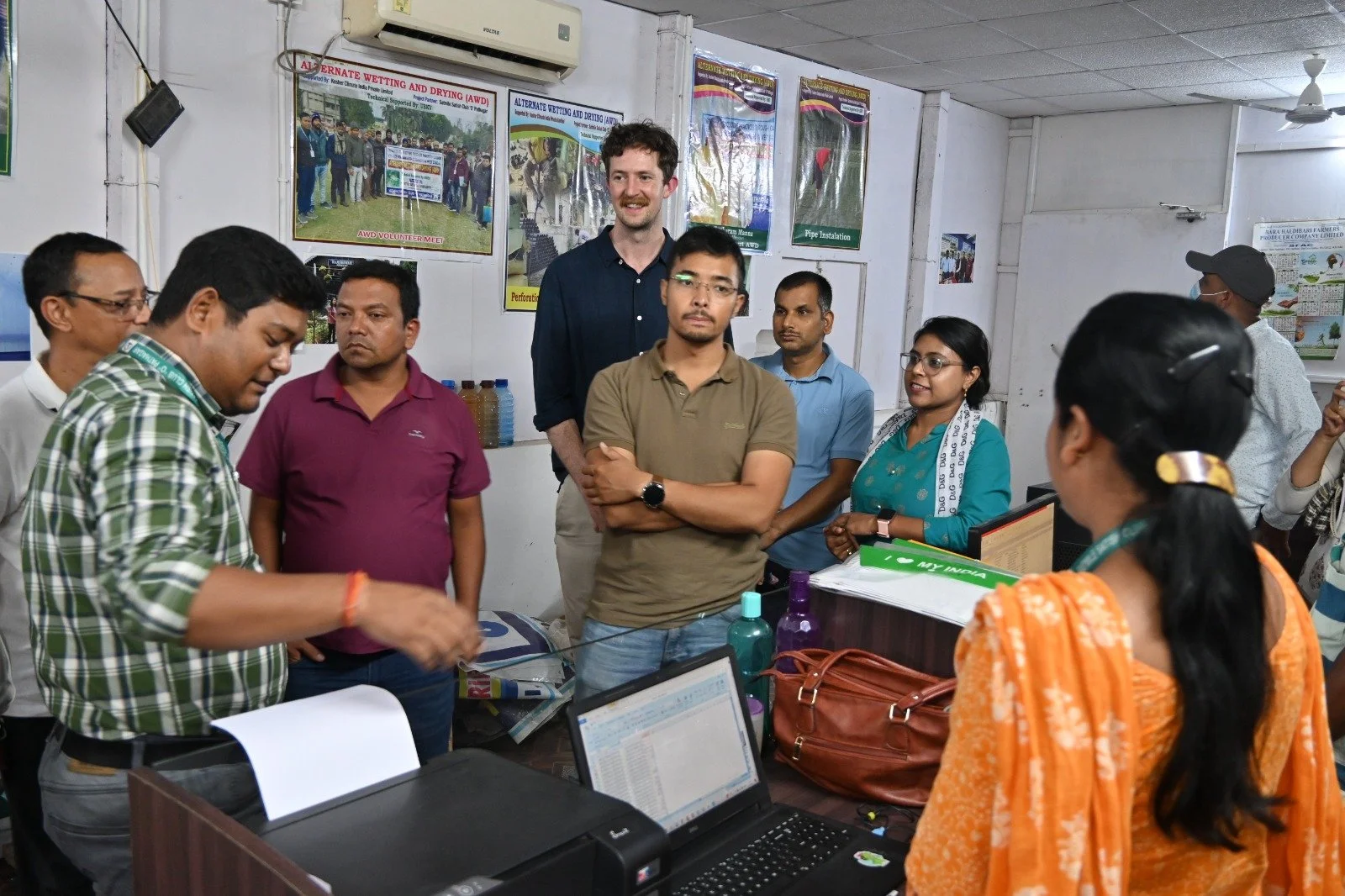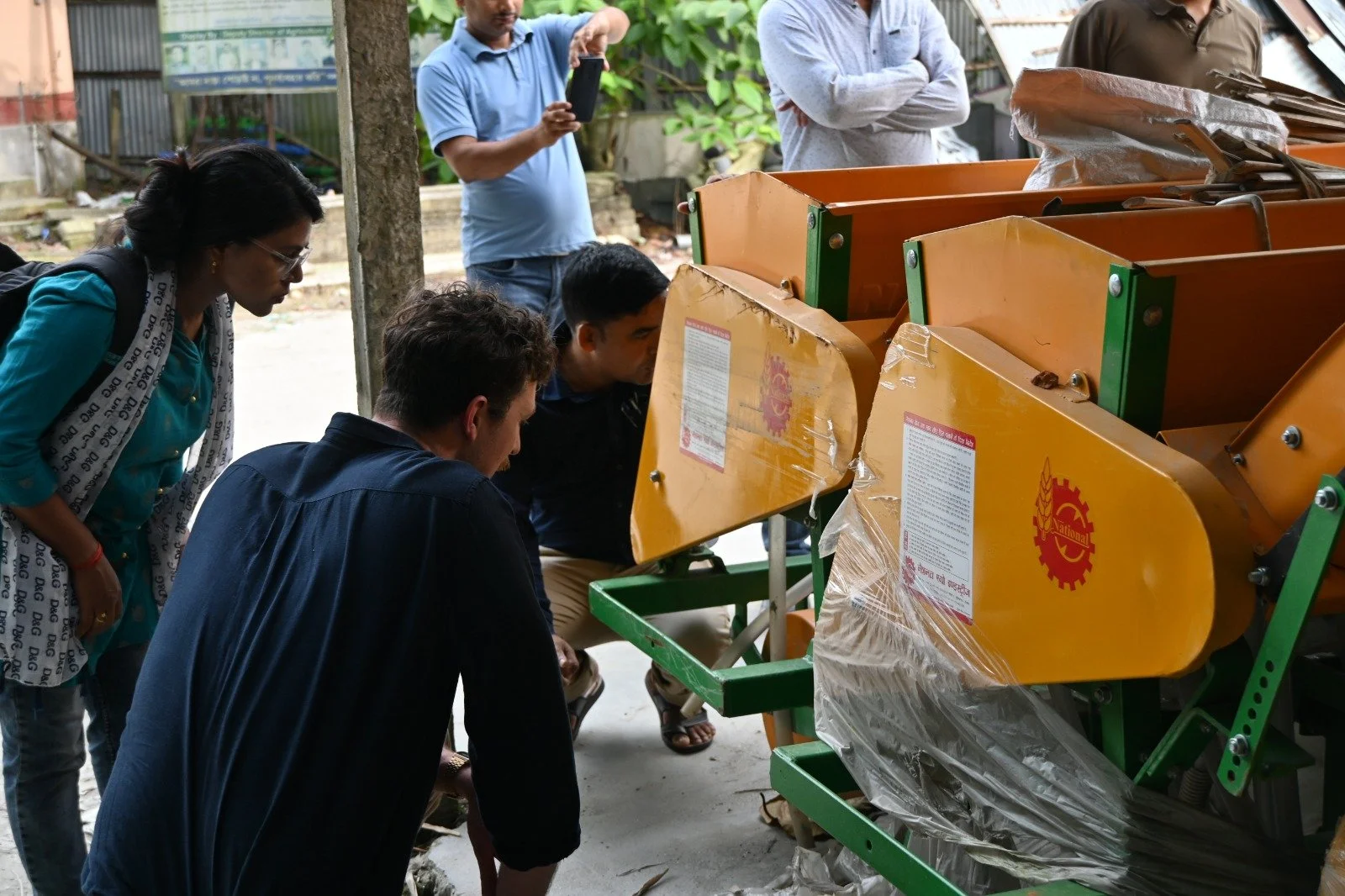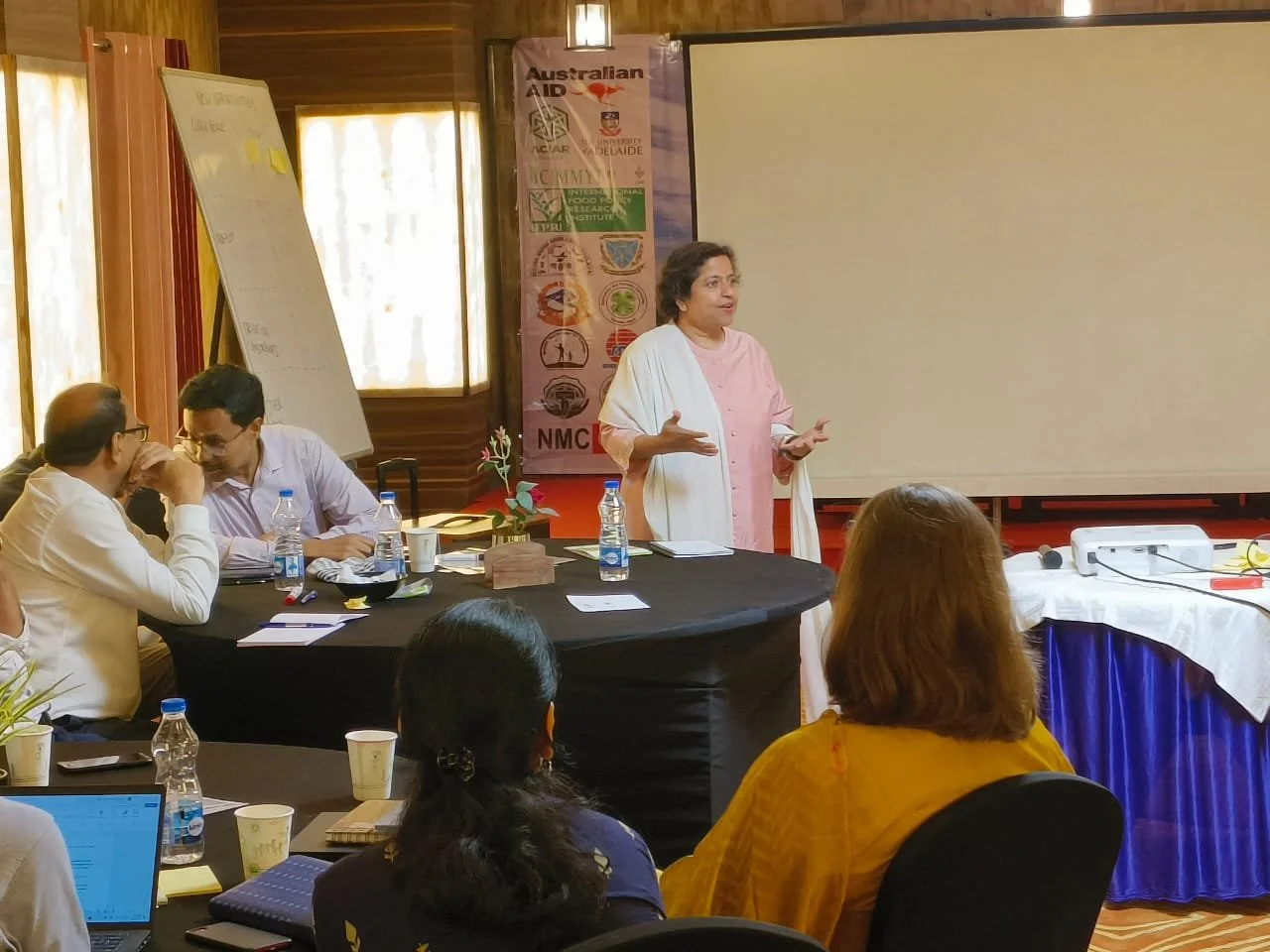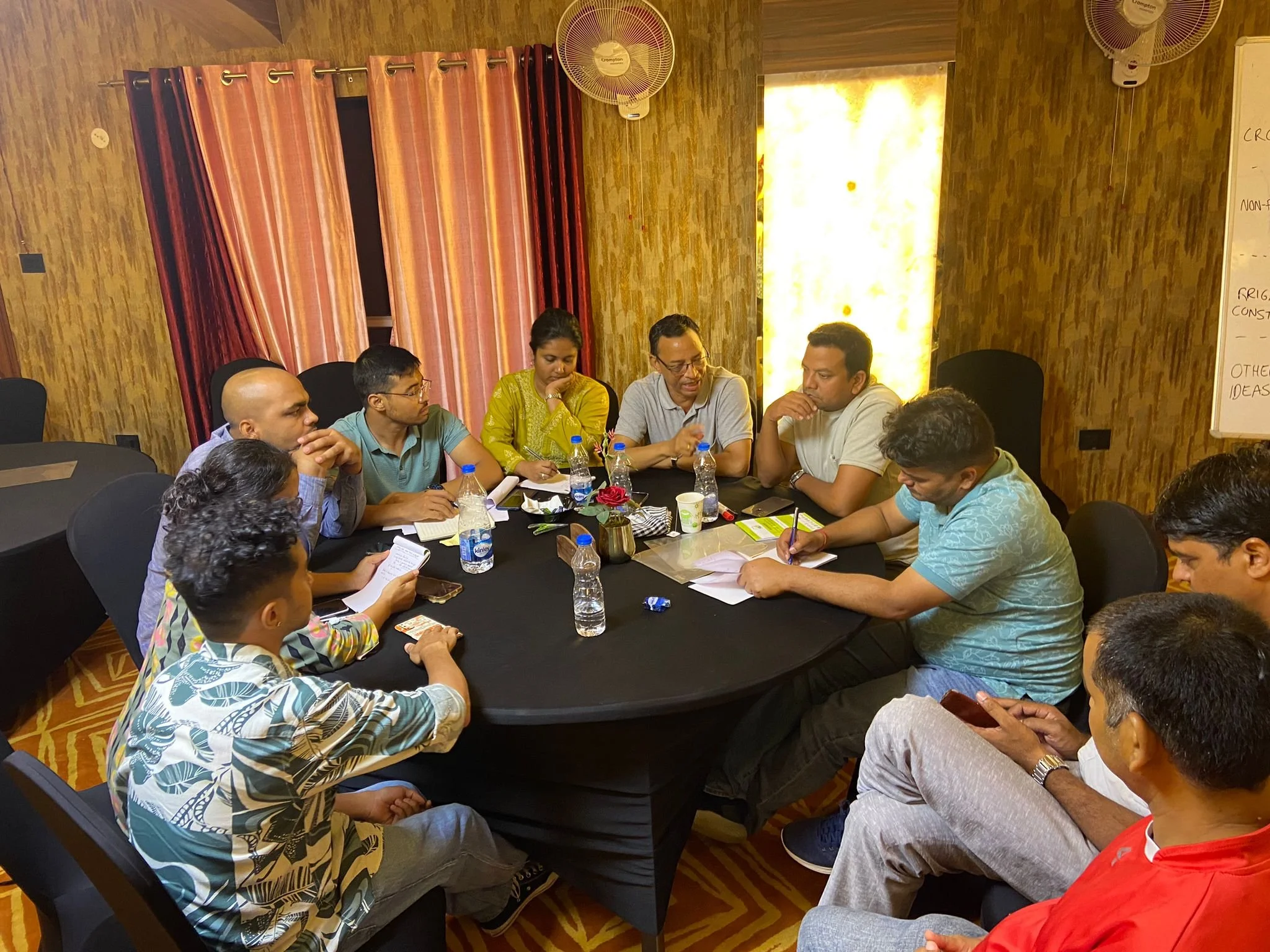Rupantar Mid Term Review
The Rupantar project is at the midway, running from 2021 to 2026. The Mid Term Review (MTR) meeting was held in September in Cooch Behar, West Bengal. This was an opportunity to reflect on achievements, identify emerging opportunities both at the project level and locations, and plan for the remaining of the project duration.
Day 1 focused on a diverse range of subjects related to our current understanding of diversification, scaling and the enabling environment for change. The presentations demonstrated the progress made on Objective 1, with much of the analysis already prepared as journal publications (with some submitted and several under preparation). It included analysis of quantitative and qualitative data. The progress on pathway selection and implementation was presented in the afternoon, showing excellent progress against Objective 2 .
Day 2 began with a focus on integrating a food systems framework and gender, followed by discussions on project progress, identifying gaps, and exploring future opportunities. Dr. Ravi Nandi introduced his food system transformation framework linked to the SDGs, setting the stage for the discussions. Prof. Sucharita Sen provided a summary of progress on gender and outlined areas still needing attention.
Key successes at the project level included strong support from ACIAR, effective coordination with local governments, and pathways chosen in consultation with farmers, ensuring relevance. Preplanning activities have been successful, and the team is united with the right mix of partners. Policy analysis has been thorough, addressing current agricultural development issues, and the diversity of expertise within the team enhances collaboration. Pathways include representation from various social groups, with strong farmer engagement through local field staff.
In the afternoon, the team visited Bhogmara, Cooch Behar, to review mustard cultivation as a diversification option and to understand farmers' aspirations.
During a side meeting with the West Bengal Department of Agriculture, UBKV, ACIAR, UoA, CIMMYT, and IFPRI, speakers highlighted the legacy of the SRFSI project, noting how conservation agriculture (CA) enabled crop diversification. Rupantar is building on this by collaborating with communities to explore diversification options at both household and community levels. The discussion focused on expanding Rupantar and the Intercropping project to other districts and scaling up a related skills project, with maize-based and rice-based systems identified as potential pathways for expansion. These discussions reflect strong policy engagement, offering insights for broader application in other locations.
A subsequent meeting of the Nepal team, CIMMYT, AFU and UoA discussed options for technical research questions related to each pathway, that will be supported by Agriculture and Forestry University, … our new partner. A range of research questions were identified and will be followed up in the coming months.
On Day 3, the morning session shifted focus to Monitoring, Evaluation, and Learning (MEL). A presentation covered household profiling and an initial mechanisms survey. The discussion then turned to reviewing location-specific outcome tables from the ARPM in March. Groups assessed current outcomes for each Pathway, considering the last six months' work and discussions to identify necessary additions and refine indicators for monitoring progress. Experienced team members (Ravi, Avinash, Sucharita) guided the process. The session also included refining Pathways based on feedback, with these updates to be integrated into the workplan and further developed in upcoming Pathway Review Workshops.
Overall, the meeting underscored the importance of long-term collaboration for impactful change, highlighted the need to document both successes and failures using mixed methods, and the ways of scaling successful agricultural practices. The project provides opportunities to work on system’s capacity building on improving climate resilience and will be further strengthened during the remaining project duration.


